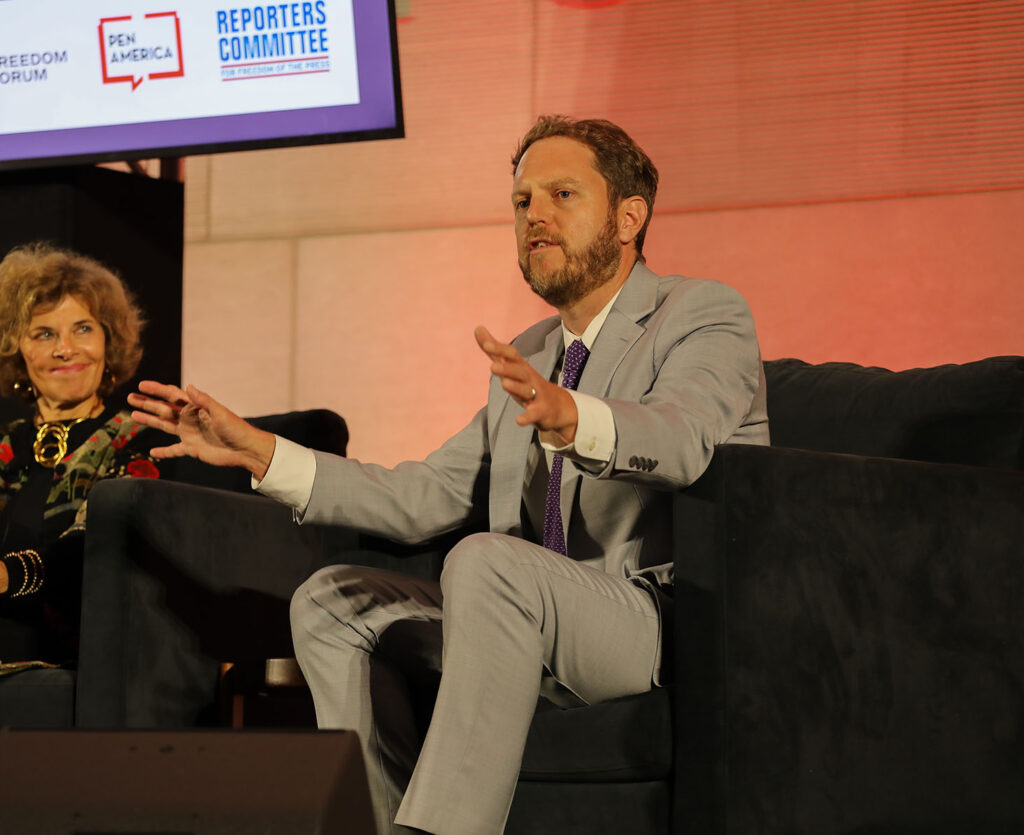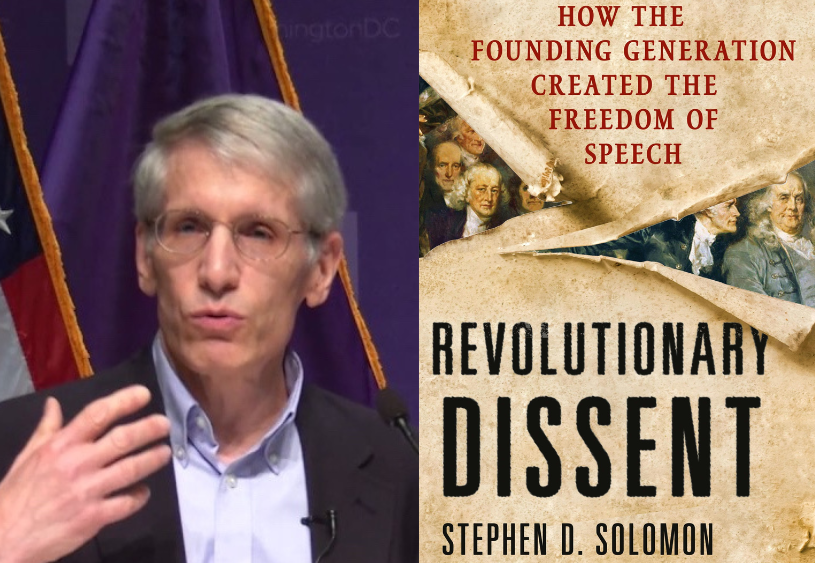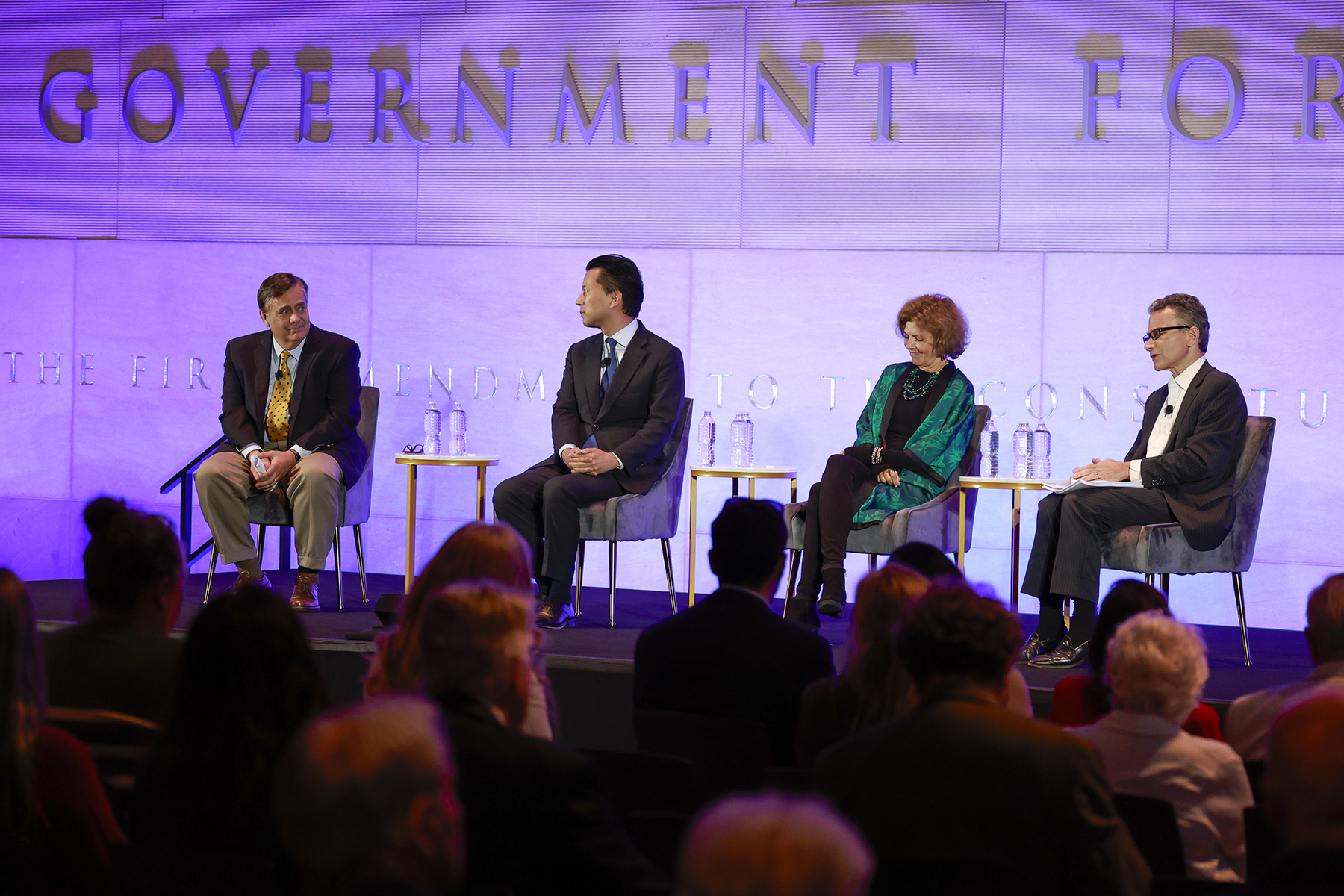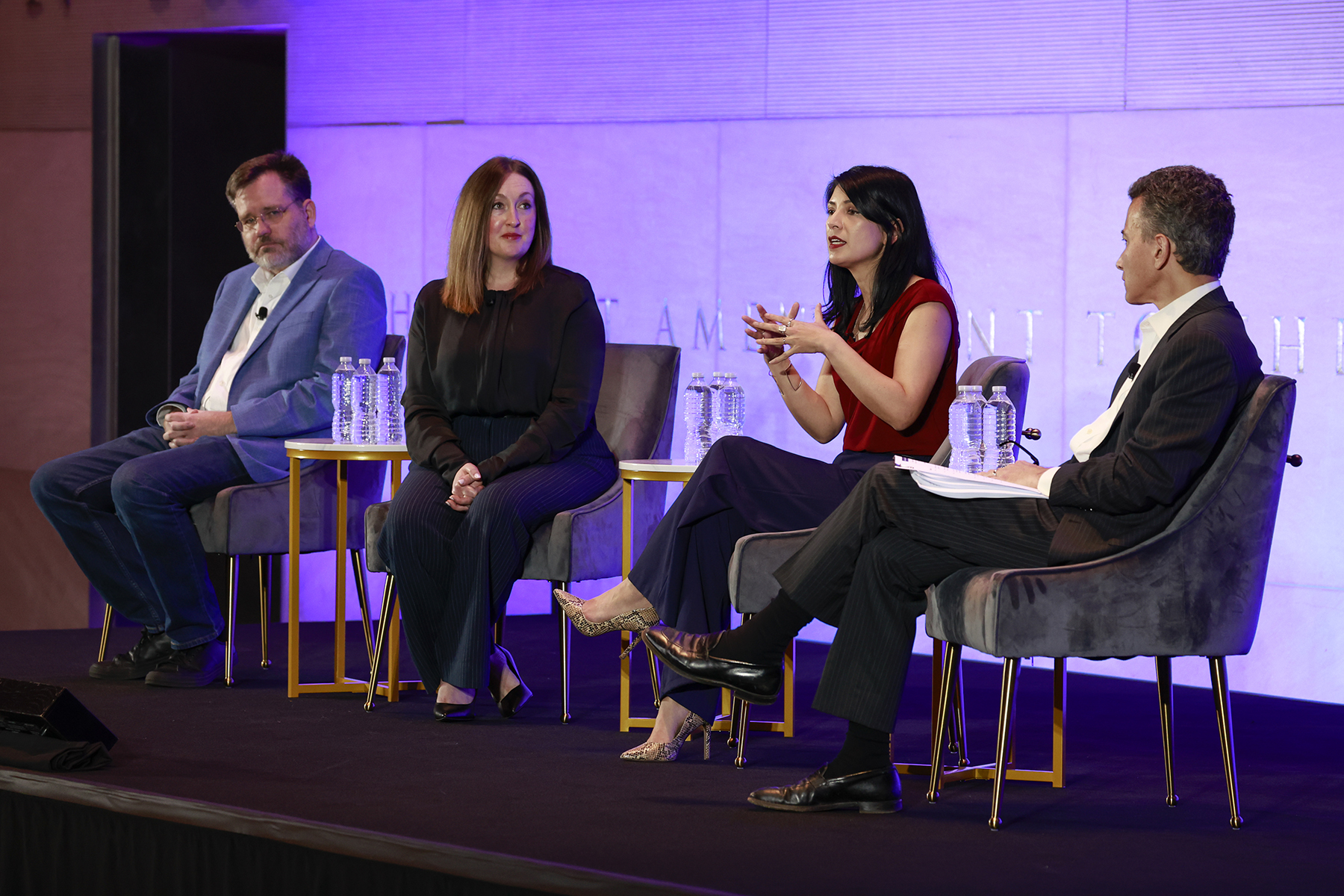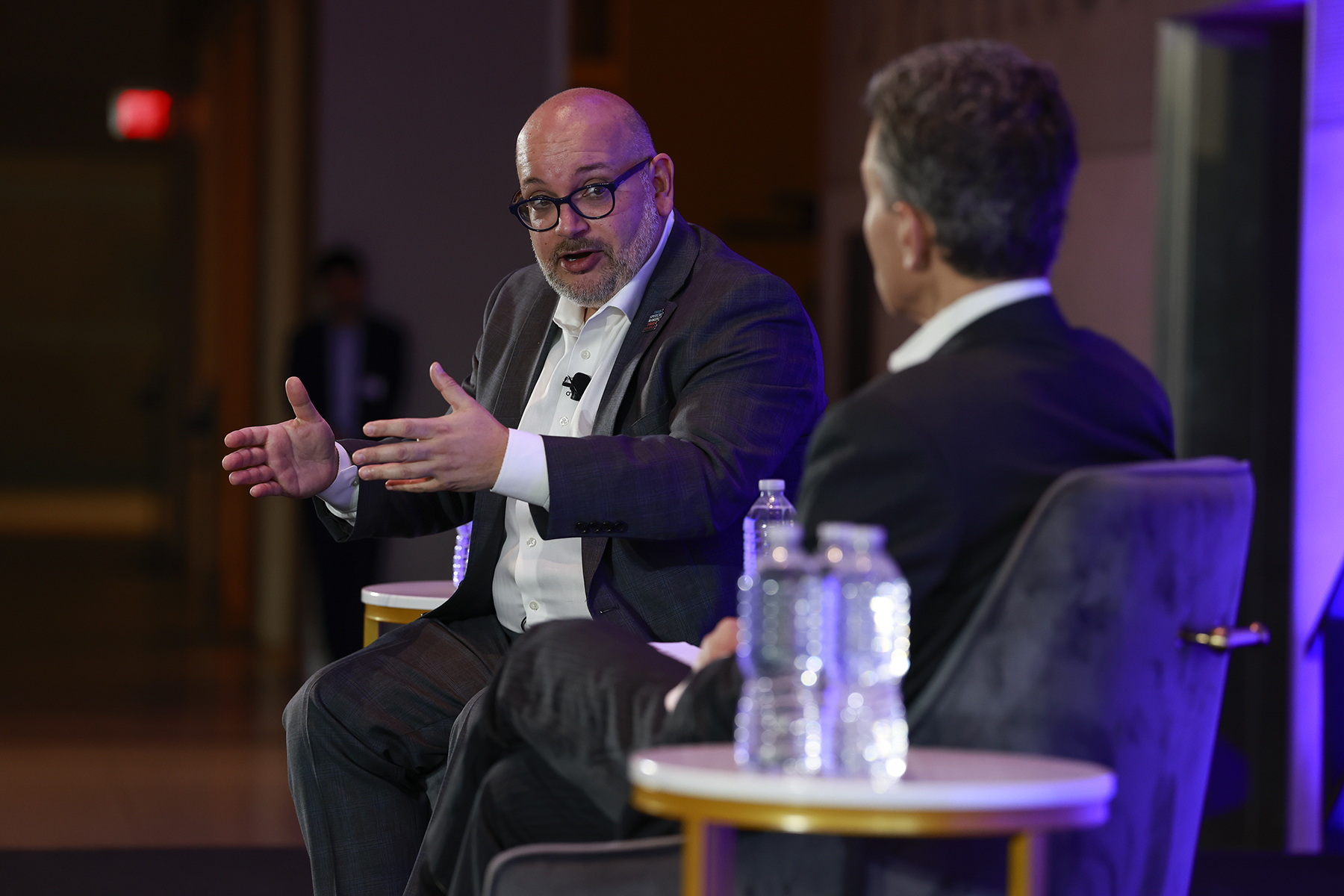Leading First Amendment scholars convened to discuss campus speech and how educators and administration can balance the tension between free speech protections and student protest at the inaugural National First Amendment Summit in Philadelphia on Wednesday.
The event, hosted by the National Constitution Center in partnership with a coalition of leading free speech organizations, including First Amendment Watch, addressed the increasing threats to freedom of expression and the looming impact of new technologies.
Moderator Jeffrey Rosen, president and CEO of the National Constitution Center, was joined on stage by Jeannie Suk Gersen, professor of law at Harvard Law School; Nadine Strossen, professor of law at New York Law School and former ACLU president; and Will Creeley, legal director at the Foundation for Individual Rights and Expression.
Creeley highlighted the 2021 Supreme Court decision in Mahanoy Area School District v. B.L., which focused on the regulation of off-campus speech, specifically on social media.The Supreme Court ruled in favor of a a high school cheerleader who shared a Snapchat to about 250 people while off-campus stating “f*ck cheer, f*ck everything.” Levy was subsequently kicked off of the cheerleading team for a year because of the post, but argued that the First Amendment limits a school’s ability to punish out-of-classroom speech.
Creeley said this case “gives us an opportunity to talk to the high schoolers in your life about why the First Amendment means something and why they should give a damn.”
According to Strossen, students might know that speech causing imminent or direct harm or violence is unprotected, but they are struggling to understand why the law doesn’t protect them from other types of perceived harm.
“Students are saying there is real harm to my psyche and to my emotions from hearing an idea that I find offensive or expression that is insensitive,” she said, but equating harassment and bullying with “ideas or words that are upsetting is very dangerous, because it means that we are stunting the educational process.”
Without the ability to develop understanding, she said, it would be difficult for students to “be engaged citizens in a Democratic republic if we don’t listen to others, including the others who may say things that we find offensive.”
Gersen said that the “tension between liberty and equality,” especially in a school setting like in Mahanoy, “come into conflict so acutely because the school also has a bunch of legal responsibilities” under federal law to address instances of bullying and harassment, among other things. Without proactively or remedially handling such instances, she said, the school can be subjected to legal issues and risk federal funding.
“There really is a conflict between the First Amendment, or free speech values, and the value of protecting people and remedying discrimination,” she said.
Creeley said that a way to “reconcile” that tension is by “insisting that the government has no right to place a thumb on either side of the scale.”
“Viewpoint neutrality is the way out,” he continued. “Everyone gets treated the same. To me, that’s equality and that’s ultimately cognizant of everybody’s equal dignity.”
You can watch the full panel here. You can find the other panel discussions featuring the country’s leading experts on free speech here.
Tags
